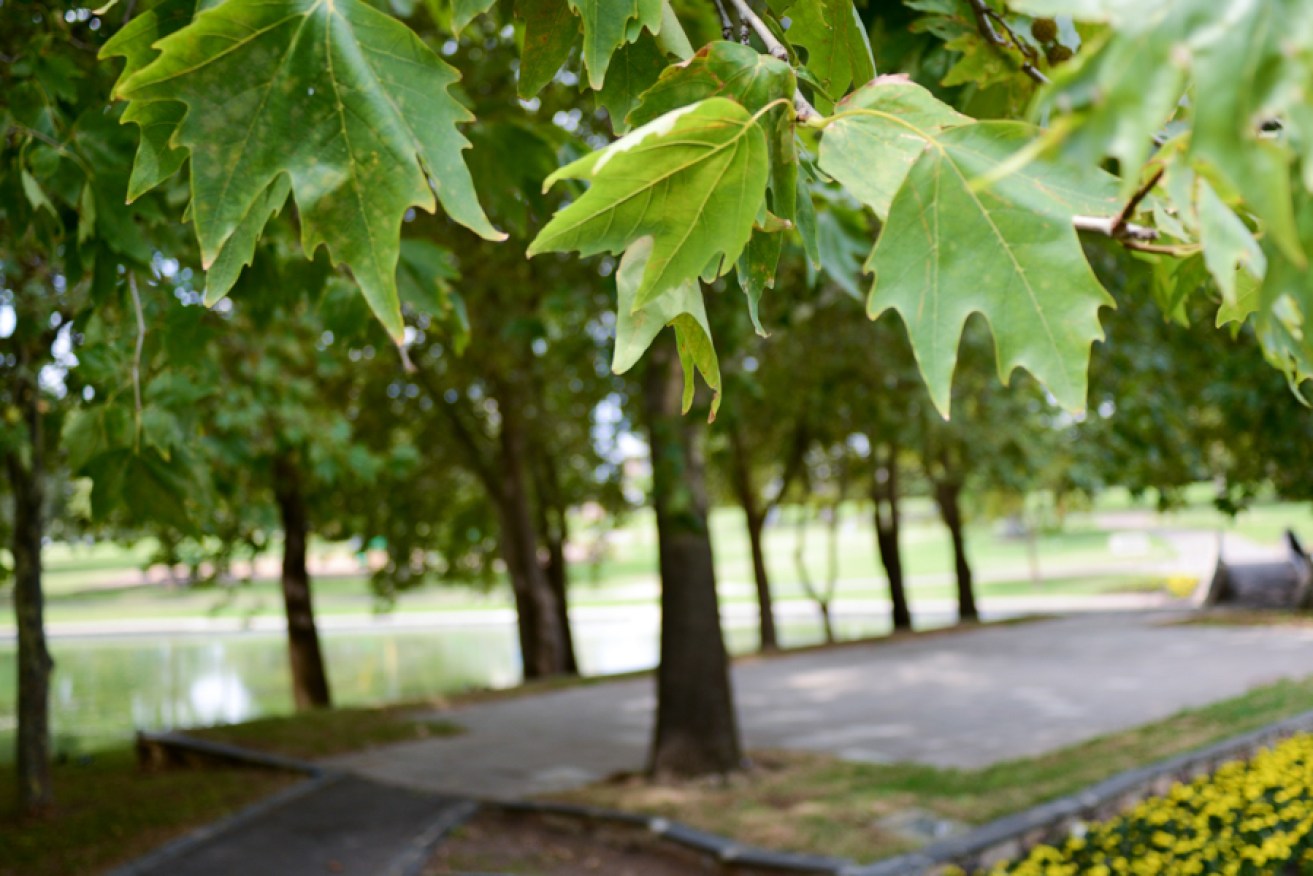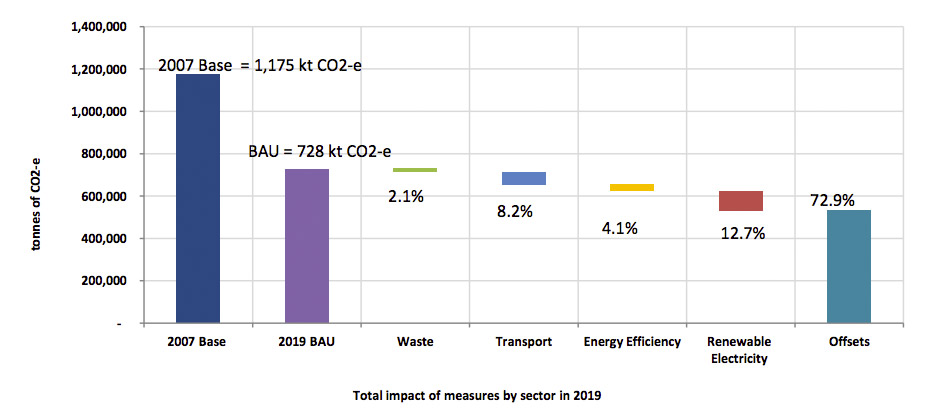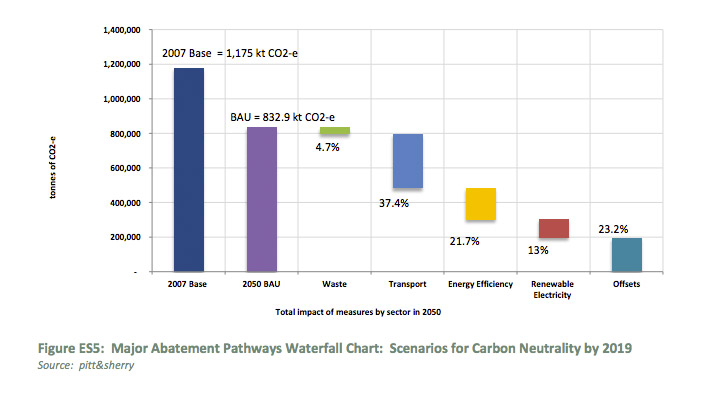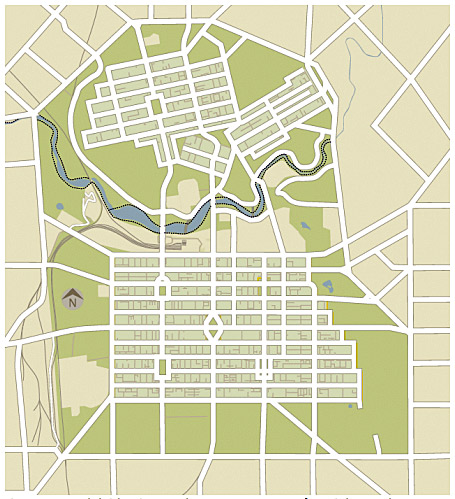Will Melbourne’s deep pockets beat Adelaide to carbon neutrality?
Adelaide may have to mostly buy its way to becoming “the world’s first carbon neutral city” because less than a third of its own emissions can be reduced in time.


Actively reducing emissions within the park lands boundary will only get Adelaide so far in the city's quest for carbon neutrality. Photo: Nat Rogers/InDaily
The latest report to the State Government on its carbon neutral ambitions for the CBD and North Adelaide shows more than 70 per cent of the area’s emissions would have to be offset to reach carbon neutrality during the 2019-20 financial year.
This means that millions of taxpayer and ratepayer dollars would need to be spent on carbon sequestration projects to suck greenhouse gasses from the air – such as tree planting – to hit the target by 2020.
The vast majority of these offsets would be purchased well beyond the city’s outer limits, including from reforestration projects in Tasmania – from which the Adelaide City Council has offset a small proportion of the city’s emissions in recent years.
However, the council says it only wants to win the race if it can do it credibly – by actively reducing Adelaide’s emissions.

Most of Adelaide’s carbon emissions reductions will have to be achieved using offsets (72.9 per cent) to make the city carbon neutral before 2020, the Pitt&Sherry report suggests.
In the short term at least, less than a third of the emissions reduction task within city limits will be achieved through driving down the city’s emissions output directly.
Projections within in the Carbon Neutral Adelaide Foundation Report, presented to State Government late last year from consultancy firm Pitt&Sherry, suggest that the output of emissions can be much more significantly curbed in the longer term – reducing the need for purchased offsets to 23 per cent in the year 2050.
Whatever the level of offsets required, Adelaide might be five years late to the party if it achieves carbon neutrality by the Adelaide City Council’s official goal year of 2025.
“On current information, ‘world’s first’ means ‘before 2020’,” the report reads.
Adelaide’s closest rival in the race to gain prized “first mover” economic advantages from securing the title is Melbourne – which has its sights set on 2020.
Melbourne’s emissions continue to grow, whereas Adelaide’s emissions have dropped significantly over the past two decades.
A central reason for the opposing trajectories has been a speedy transfer of South Australia’s electricity supply to renewable energy sources.
“Adelaide would probably have a better shot than Melbourne [at becoming carbon neutral],” ThinkClimate consultancy director Ben Heard tells InDaily.
“I’d find it very difficult to see the city of Melbourne getting [to carbon neutral] by 2020.
“They have the dirtiest electricity supply in the country.”
But Adelaide could still be pipped at the post by the Victorian capital, which has publicly stated it intends to purchase offsets to reach the goal.
Adelaide Lord Mayor Martin Haese is cautious but enthusiastic about the world-first carbon neutral city concept.
He tells InDaily that “there’s no use being first it you are not doing it on a sound basis”.
“If X, Y, Z city announces carbon neutrality tomorrow [using large offset purchases] that would be viewed with great cynicism,” he says.
But that if the goal can be met “credibly”, then “I’d like us to lead on this,” says Haese.
He says “cities must embrace credible, meaningful” emission reduction measures.
Haese says the council has already made significant strides to reducing the city’s carbon footprint, including by introducing a Sustainable City Incentives Scheme, which provides grants of up to $5,000 for sustainability measures for city residents and businesses.
The council also plans to roll out solar systems to each of its buildings and review its procurement practices, including by purchasing low-emissions or electric vehicles for its fleet.
But Haese is keen to talk up the “first mover advantage” Adelaide could gain from the title of “world’s first carbon neutral city”.
He says it could constitute an “official certification” of the “clean, green” image South Australia already enjoys internationally, and could mean a boon for the State’s agricultural industry, not to mention the tourism and low-carbon tech industries.
Being world-first would mean Adelaide could “own this on the world stage”, says Haese.
“It could be a boon for our agricultural exports.”
“It’s an incredibly persuasive enticement.”
SA Minister for Climate Change Ian Hunter says the State Government and the council are “committed to making Adelaide the world’s first carbon neutral city, and a showcase city for renewables and clean technology”.
“How this will be achieved, and the economic benefits we predict to flow from our status as a leading jurisdiction in this exciting area, will be released later this year.
“Our strong partnership places Adelaide ahead of all other cities – including Melbourne – in the ambition to achieve carbon neutrality.”
Yet Haese says it would be an “ambit claim” to suggest Adelaide would necessarily snatch the title by 2020, and there is no suggestion the council will be modifying its 2025 target date.
He says the council would be asking the State Government to help pay for the offsets, which he conceded would cost “millions” each year.
He stresses the need to achieve carbon neutrality “credibly”.
“Any city, should its pockets be deep enough, can achieve carbon neutrality [through purchased offsets] whenever they wish,” he says.
“If we, through genuine measures … can show that we’ve genuinely driven down our emissions we would be viewed extremely favourably.
“The world is watching.”






